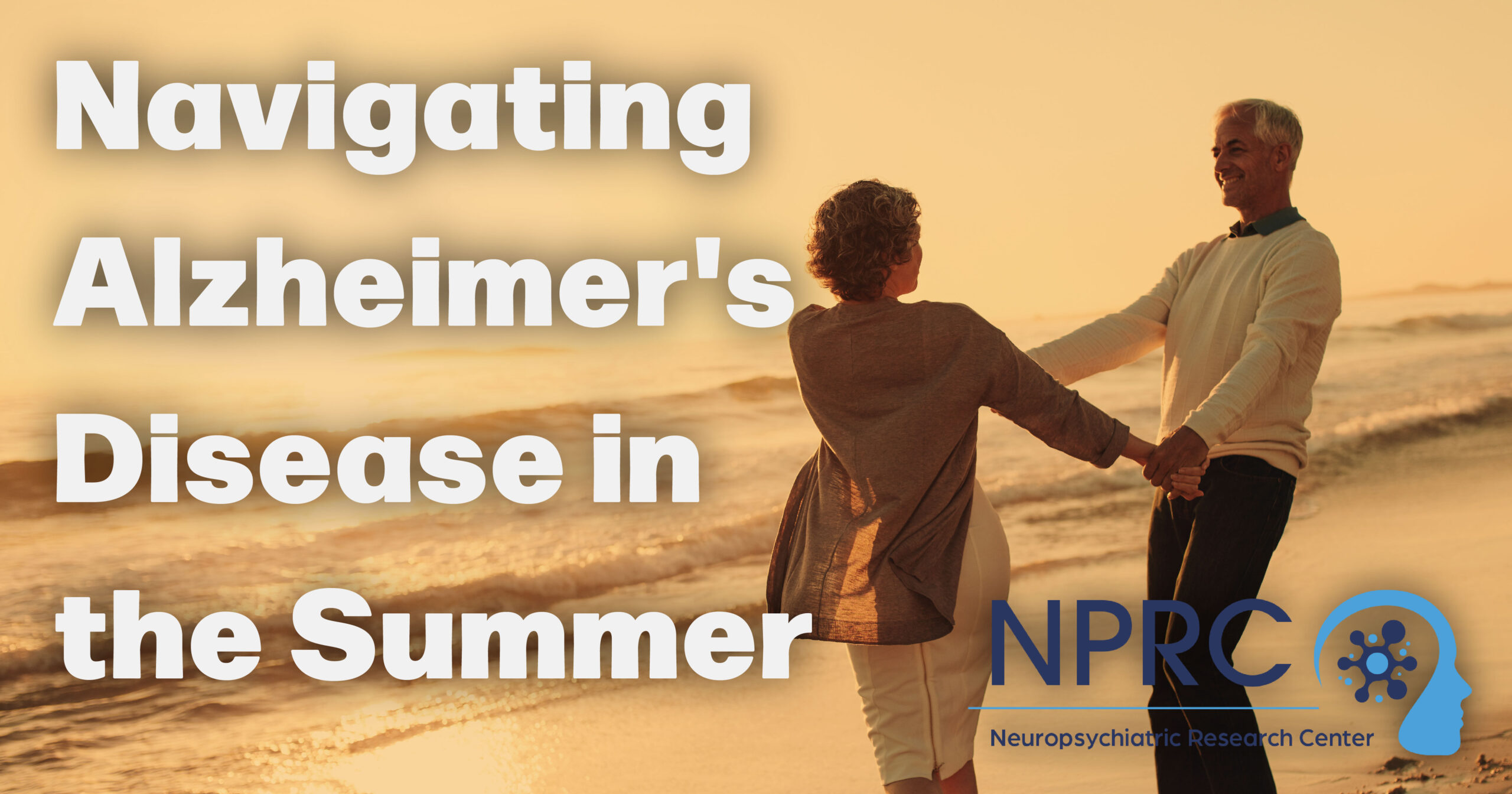As the summer season arrives, it brings with it warmer temperatures, longer days, and a range of activities to enjoy. However, for individuals with Alzheimer’s disease and their caregivers, this time of year can present unique challenges. In this blog post, we will explore how Alzheimer’s disease can be influenced by summer conditions and provide caregivers with practical tips to ensure the safety and well-being of their loved ones during this season.
The Impact of Summer on Alzheimer’s Disease:
The summer heat and increased daylight hours can affect individuals with Alzheimer’s disease in various ways. Here are a few key considerations
- Heat Sensitivity: People with Alzheimer’s may have difficulty regulating body temperature, making them more vulnerable to heat-related illnesses such as heat exhaustion or heatstroke. Additionally, certain medications commonly prescribed for Alzheimer’s can hinder the body’s ability to cool down effectively.
- Hydration Challenges: Alzheimer’s disease can affect an individual’s thirst sensation and their ability to communicate their needs. This can lead to dehydration, which can have serious health consequences, especially during hot weather.
- Routine Disruptions: Summer often brings changes to routines, such as vacations, family visits, or outdoor events. These disruptions can cause confusion and anxiety in individuals with Alzheimer’s, who rely on familiar environments and structured routines for a sense of stability.

Tips for Caregivers:
- Stay Cool and Hydrated: Ensure that your loved one stays cool by keeping the indoor environment comfortable with fans or air conditioning. Encourage regular fluid intake throughout the day, offering water and other hydrating beverages. Include foods with high water content, such as fruits and vegetables, in their diet.
- Dress Appropriately: Choose loose-fitting, lightweight clothing for your loved one, opting for breathable fabrics. Protect their skin from the sun by applying sunscreen, providing a hat, and utilizing shade whenever possible during outdoor activities.
- Maintain a Consistent Routine: While some changes are inevitable during the summer, try to establish a consistent daily routine as much as possible. Familiar activities, mealtimes, and quiet periods can help provide a sense of stability and reduce anxiety.
- Be Mindful of Outdoor Activities: Engaging in outdoor activities can be enjoyable for individuals with Alzheimer’s, but it’s crucial to take precautions. Plan activities during cooler parts of the day, such as early morning or late afternoon. Seek shaded areas, and avoid prolonged exposure to direct sunlight. Don’t forget to bring water and take regular breaks.
- Stay Connected: Summer offers opportunities for socialization and engagement. Encourage visits from family and friends, but ensure that they are aware of your loved one’s condition and can provide the necessary support and understanding. Engage in activities that promote mental stimulation, such as puzzles, reminiscing, or gentle exercises suitable for the season.
Summer can be a challenging time for individuals with Alzheimer’s disease and their caregivers due to the heat, routine disruptions, and potential dehydration risks. By implementing these practical tips, caregivers can help ensure the safety, comfort, and enjoyment of their loved ones during this season. Remember to consult with healthcare professionals for personalized advice and always prioritize the well-being of both the individual with Alzheimer’s and yourself as a caregiver.
Neuropsychiatric Research Center of Southwest Florida offers FREE memory screens for adults at risk of Alzheimer’s or concerned about memory issues they are experiencing. Our site also conducts research studies looking into potential new options for Alzheimer’s. Individuals with dementia, caregivers, and healthy volunteers are all needed to participate in upcoming research studies. To learn more, call us at (239) 939-7777 or visit our website today!
References:
- Alzheimer’s Association. (n.d.). Summer Tips for Alzheimer’s Caregivers. Retrieved from https://www.alz.org/help-support/caregiving/tips-and-resources/seasonal-tips/summer-tips
- Mayo Clinic. (2021). Alzheimer’s disease. Retrieved from https://www.mayoclinic.org/diseases-conditions/alzheimers-disease/symptoms-causes/syc-20350447





